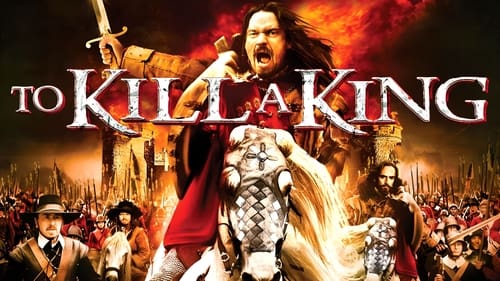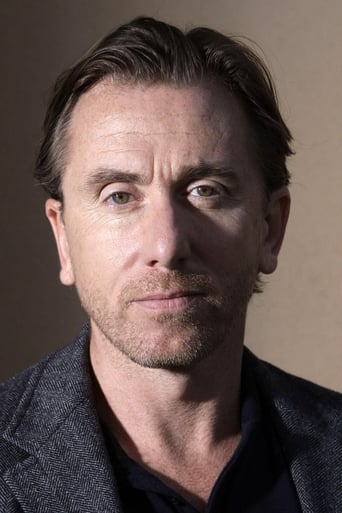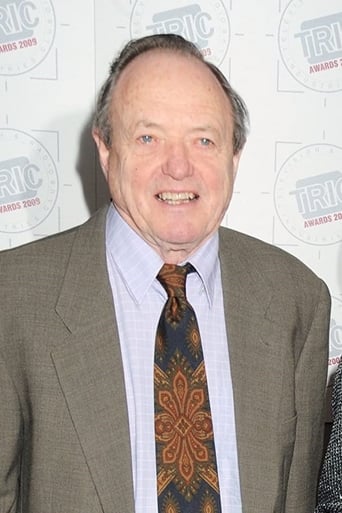Inclubabu
Plot so thin, it passes unnoticed.
Majorthebys
Charming and brutal
AnhartLinkin
This story has more twists and turns than a second-rate soap opera.
Senteur
As somebody who had not heard any of this before, it became a curious phenomenon to sit and watch a film and slowly have the realities begin to click into place.
Cheese Hoven
The events surrounding the trial and execution of Charles I are among the most compelling in English history. It is unfortunate, therefore, that the film treats these events as a mere backdrop to a personality clash between Cromwell and Fairfax, centering unconvincingly on Fairfax's wife. Cromwell, given here rather more flair by Tim Roth than he possessed in history, is seen to be motivated more by hidden sexual desire than religious fervour or a sense of injustice.While this is ahistorical, it could have made an interesting film. However, the script, by Jenny Mayhew, never rises above the level of daytime soap opera, with the characters constantly emoting about their feelings or shallow artificial conflicts created between them. As if the conflict which ripped England apart at that time was not sufficient!One scene in particular sums it all up. Charles I is being tried by parliament. This extraordinary event is not interesting to the writer. What interests her is when Fairfax arrives and, without anyone else intervening, takes the hand of his wife and leaves! And this is deemed more important than the trial of a king.
Dr Jacques COULARDEAU
1645 is a crucial year but what happened is not clear in this film that concentrates more on personal issues and intimate details than on historical facts.The rivalry between Fairfax and Cromwell is purely circumstantial. It is not the very problem at the heart of the period. Cromwell is the one who reformed the army to lead them to victory. Cromwell is the one who had the eloquence and religious depth to inspire that newly reformed army to victory a first time against the king, and a second time against the king, and several more times against the Irish, the Scots and Spain. The second civil war is not clear in the film at all, apart from gritty details about hangings, killings and battlefield deaths.The debate around parliament and the king is essential and reduced here to a clash between personalities, a clash between the authority of the military and that of the political branch of government. It also reduces Cromwell to pure violence, anger, fits of aggressiveness, etc. But that is not the debate. The debate is in the very nature of the king. In 1649 it is feudalism that dies on the scaffold, and not only the king. It is not the question of blue or red blood, but the question of who or what appoints the king, is it god or is it parliament, or even is it the people? That third alternative is absolutely absent, as if the film ignored the formula "the government of the people, by the people and for the people", at the end of another civil war.This period then changed Europe, true enough, but also the world, and the end of the film with a jump from "Cromwell's revolution" to the "French Revolution" is absurd. It ignores the Glorious Revolution and the dismissal of the King by parliament, the establishment of rules for the choice or designation of successors on the throne by Parliament then, and the Declaration of Independence in America that explains how the people is fully justified to dismiss a king when the relations between this king and his people have distended and even gotten ruptured. For the first time ever in the feudal world that included the colonies in America a king, Charles I, was dismissed by his people and the representatives of this people.The film is not clear at all on another detail: the fact that there must have been only a few tens of thousands of electors in England at the time to elect the members of parliament. Only the propertied free people who had real estate or a business (that could include as property serfs and other permanently or temporarily indentured human beings along with cattle and economic equipment) and paid taxes for these possessions or businesses could vote. The House of Lords had been disbanded and the House of Commons only represented the propertied and business-endowed tax paying at least well-off people, the bourgeoisie in another word. The film thus does not have to mention that seven members of Cromwell's family were at one time members of parliament.It also can speak of the people as an abstract concept. The bourgeoisie was essentially a mercantile bourgeoisie and they possessed the fleet of the country and employed all the sailors. The crown had no fleet per se. Parliament, or rather the House of Commons, or what was left of it after various purges, was in the hands of the merchants and under the pressure of their fleet and sailors, and both were armed to defend themselves on the sea they were starting to conquer from the sails of Spain. This armament could easily be turned around.That makes history easy then. There was no legal basis to dismiss the king, and what's more execute him in the whole world, I mean Christian world of course, and parliament "abused" their power in that case, and yet they wrote the world's history because after them there was a simple jurisprudence: a people has the right to dismiss their king if that king is no longer governing in the interest of that people. In a country of common law, that is an important argument. In 1215 at the time of Magna Carta, the barons and the church had imposed to the king a few measures but never did they question his authority that came from god almighty anyway. And we all know that since T.S. Eliot used the argument in his "Murder in the Cathedral".The result is a very dubious Cromwell and a very haphazard approach of history, and a very long and high jump from 1649 to 1660 and the Restoration. But it is from 1649 to 1660 that the most important events occurred in Ireland, in Scotland and on the Seas against Spain, all for the sole profit of the merchants and the overseas maritime companies that were starting to emerge.But it is always interesting to see something about this period which is still taboo in England. No surprise that the BBC is mostly absent from this field of historical study.Dr Jacques COULARDEAU
ma-cortes
The film centers about Olivier Cromwell (Tim Roth) and Thomas Fairfaix (Dougray Scott). This interesting picture results to be a recounting of the relationship between General Fairfax and Oliver Cromwell, as they try to cope with the consequences of deposing King Charles I . As Cromwell took over Parliament and taking on king Charles I (Rupert Everett). Then were created two factions : the Roundheads (Cromwell's congressmen) and Cavaliers or Royalists (King's nobility) , both sides had generals of considerable skill and undaunted courage as Thomas Farfaix . Cromwell defeated royal army in battles of Moor , Preston and Naseby (1645). Later on , in 1653 , he was named Lord protector of "Commomwealth" Republic . He imposed a dictatorship ruled by puritans and vanquished the Irish and Scottish army . He also fights against Holland and Spain . Cromwell developed a law of navigation for the British navy . He early died by fevers's illness . Richard Cromwell succeeded his father as President but he was rapidly dismissed .A general of the Republic army and professional soldier named Thomas Farfaix commands the troops as Parliamentary commander-in-chief . His misunderstanding with Cromwell originates his desertion . Duration Republic was since 1648 to 1660 . Charles II went back to British kingdom and the regicides (those who had condemned Charles I to death) were arrested and hanged , drawn and quartered at Charing Cross . The Cromwell's body was disinterred , and his remains were hung from a scaffold.The main cast formed by Tim Roth , Dougray Scott , Rupert Everett and Olivia Williams as Lady Farfaix give excellent performances in this historic tale . The movie is very atmospheric with a first rate set design and splendid scenarios . Good direction by Mike Barber , colorful cinematography and evocative musical score . The motion picture will appeal to history's buffs. Rating : 6,5 / 10 . Better than average .
Claudio Carvalho
In 1645, after the revolutionary movement of the puritans against the King of England Charles I of Stuart (Rupert Everett), with the leadership of the best friends General Oliver Cromwell (Tim Roth) and General Thomas Fairfax (Dougray Scott), the king is judged and condemned to death by decapitation. General Oliver Cromwell wishes to implement the republic in England, but his monarchist friend Fairfax does not agree, and they break their friendship. Cromwell becomes a dictator, with the title of Lord Protector of the Commonwealth, until 1658, when he is very sick and dies. When I was a student, I had classes about this period of England history, but unfortunately not enough to make any judgement of the historical accuracy of this movie. As far as I remember, the period of the dictatorship of Cromwell was very violent, and it was omitted in the story. As a film, it is a beautiful story of the friendship and relationship of two leaders with different political objectives. The cast and direction are excellent, and the reconstitution of the period is wonderful. I have appreciated and recommend this movie without analyzing the accuracy of the events. If the viewer knows this period of history well, he will have the opportunity to verify its accuracy, otherwise he will a chance to enjoy a good movie. My vote is seven.Title (Brazil): 'Morte ao Rei' ('To Kill a King')






